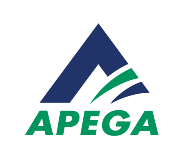GAPC Does Not Define Scope of Practice for Engineering Designations

The Association of Science and Engineering Technology Professionals of Alberta’s Chief Executive Officer and General Counsel, Barry Cavanaugh, authored an article in the Fall 2023 issue of Technology Alberta, titled: A solution to our scope of practice and definition issues!
This article poses an opinion that the benchmarks in the International Engineering Alliance’s (IEA) Graduate Attributes and Professional Competencies (GAPC) international benchmark (June 2021) are a definition of scope of practice for engineering technicians and technologists.
In the article, it is implied that through our affiliation with Engineers Canada, APEGA was aware that these benchmarks existed, and we were negligent in not presenting them as a solution to the government to address ASET’s desire for scope of practice for technicians and technologists.
This is inaccurate, as these benchmarks do not define scope for any designation of engineering. The Canadian Council of Technicians and Technologists—a group ASET was a member of when the accords and the GAPC were signed—represented Canada on all matters in these documents related to technicians and technologists. It is presumed that ASET had knowledge of the contents of these documents at that time (2001 and 2005).
What is the GAPC?
The GAPC contains a series of graduate attributes and competency benchmarks for engineers, engineering technicians, and engineering technologists, which clearly identifies and describes the scope and range of engineering activities stated generically and broadly enough to be applicable to all engineering disciplines.
The document’s purpose is to provide substantial equivalence of engineering accreditation internationally for educational purposes, not define scope of practice for professional engineers, engineering technologists, or engineering technicians.
These benchmarks may have the potential to be a basic starting point to help define the practice of technicians and technologists, but they do not address scope of practice in a detailed manner, they do not differentiate between reserved and regulated practices, and they do not explicitly define the line between professional engineering work and that of a technician or a technologist.
International alignment benefits the profession
When comparing Canada to the other original signatories of international engineering agreements and accords, such as the GAPC, that govern professional engineers, engineering technologists, and engineering technicians, it becomes clear our country is an outlier. The original signatories of these documents have a single regulator for all three designations, all held accountable to one act. This includes jurisdictions such as Ireland, Australia, New Zealand, South Africa, the United Kingdom, and Hong Kong.
Having a single regulator responsible for the regulation of the practice of professional engineers, engineering technologists, and engineering technicians provides clarity regarding scope of practice, defines the line between professional engineering work and that of a technician or a technologist, and unites the professions.
APEGA is committed to the effective regulation of the engineering profession, and we will continue to make public safety and the public interest our top priorities.
Find Out More
- See the International Engineering Alliance’s (IEA) Graduate Attributes and Professional Competencies (GAPC) international benchmark (June 2021)
- Read the Fall 2023 issue of Technology Alberta, titled: A solution to our scope of practice and definition issues!
